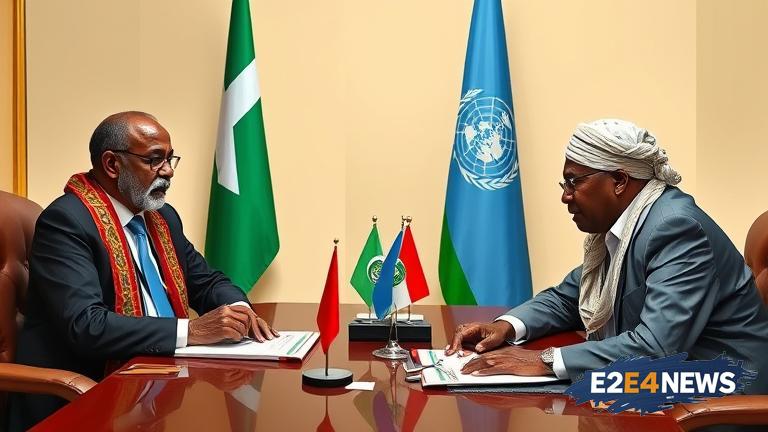The President of Puntland, a semi-autonomous region in northeastern Somalia, recently met with the United Nations Special Representative for Somalia, James Swan, to discuss the escalating political tensions in the country. The meeting comes at a critical time, as Somalia is facing a severe political crisis that threatens to destabilize the entire region. The President and the UN Envoy engaged in a productive discussion, focusing on the need for a peaceful resolution to the crisis. They emphasized the importance of dialogue and cooperation among all stakeholders to address the underlying issues driving the tensions. The meeting also touched on the role of the international community in supporting Somalia’s efforts to achieve stability and security. The Puntland President expressed his commitment to working with the federal government and other regional states to find a lasting solution to the crisis. He also highlighted the need for the international community to provide support and assistance to Somalia, particularly in the areas of security, economic development, and humanitarian aid. The UN Envoy, James Swan, reiterated the United Nations’ commitment to supporting Somalia’s peace and reconciliation process. He emphasized the importance of inclusive dialogue and the need for all parties to work together to address the country’s challenges. The meeting between the Puntland President and the UN Envoy is seen as a positive step towards resolving the political crisis in Somalia. It demonstrates the willingness of the parties involved to engage in constructive dialogue and work towards a peaceful resolution. The international community has welcomed the meeting, with many expressing hope that it will mark the beginning of a new era of cooperation and stability in Somalia. However, the road to peace and stability in Somalia will be long and challenging, requiring the collective efforts of all stakeholders. The country has been plagued by conflict and instability for decades, and the current crisis is just the latest manifestation of these deeper issues. Despite these challenges, there is a growing sense of optimism that a peaceful resolution can be achieved. The meeting between the Puntland President and the UN Envoy has helped to build momentum for a peaceful resolution, and it is hoped that this momentum will continue to grow in the coming days and weeks. The international community will be watching the situation in Somalia closely, and it is likely that there will be increased pressure on all parties to work towards a peaceful resolution. In the meantime, the people of Somalia continue to suffer the consequences of the political crisis, with many facing severe humanitarian challenges. The need for a peaceful resolution to the crisis is urgent, and it is hoped that the meeting between the Puntland President and the UN Envoy will be a major step towards achieving this goal. The meeting has also highlighted the importance of regional cooperation and the need for all regional states to work together to address the challenges facing Somalia. The Puntland President’s commitment to working with the federal government and other regional states is a positive step in this regard. As the situation in Somalia continues to evolve, it is likely that there will be further meetings and negotiations between the parties involved. The international community will be playing a close watching brief, and it is hoped that a peaceful resolution to the crisis will be achieved in the near future. In conclusion, the meeting between the Puntland President and the UN Envoy is a significant development in the ongoing political crisis in Somalia. It demonstrates the willingness of the parties involved to engage in constructive dialogue and work towards a peaceful resolution. While the road to peace and stability in Somalia will be long and challenging, there is a growing sense of optimism that a peaceful resolution can be achieved. The international community will be watching the situation closely, and it is likely that there will be increased pressure on all parties to work towards a peaceful resolution.
